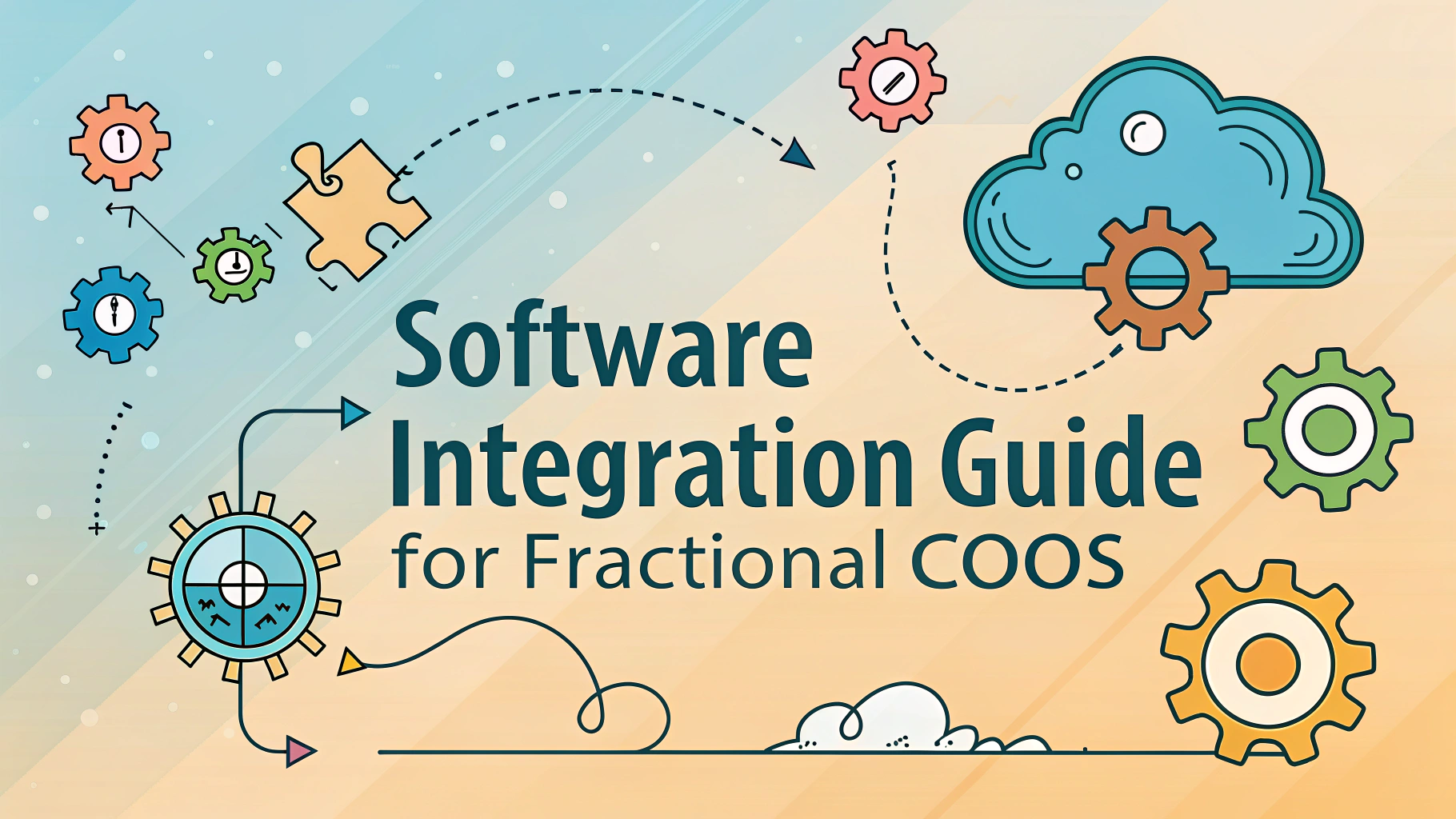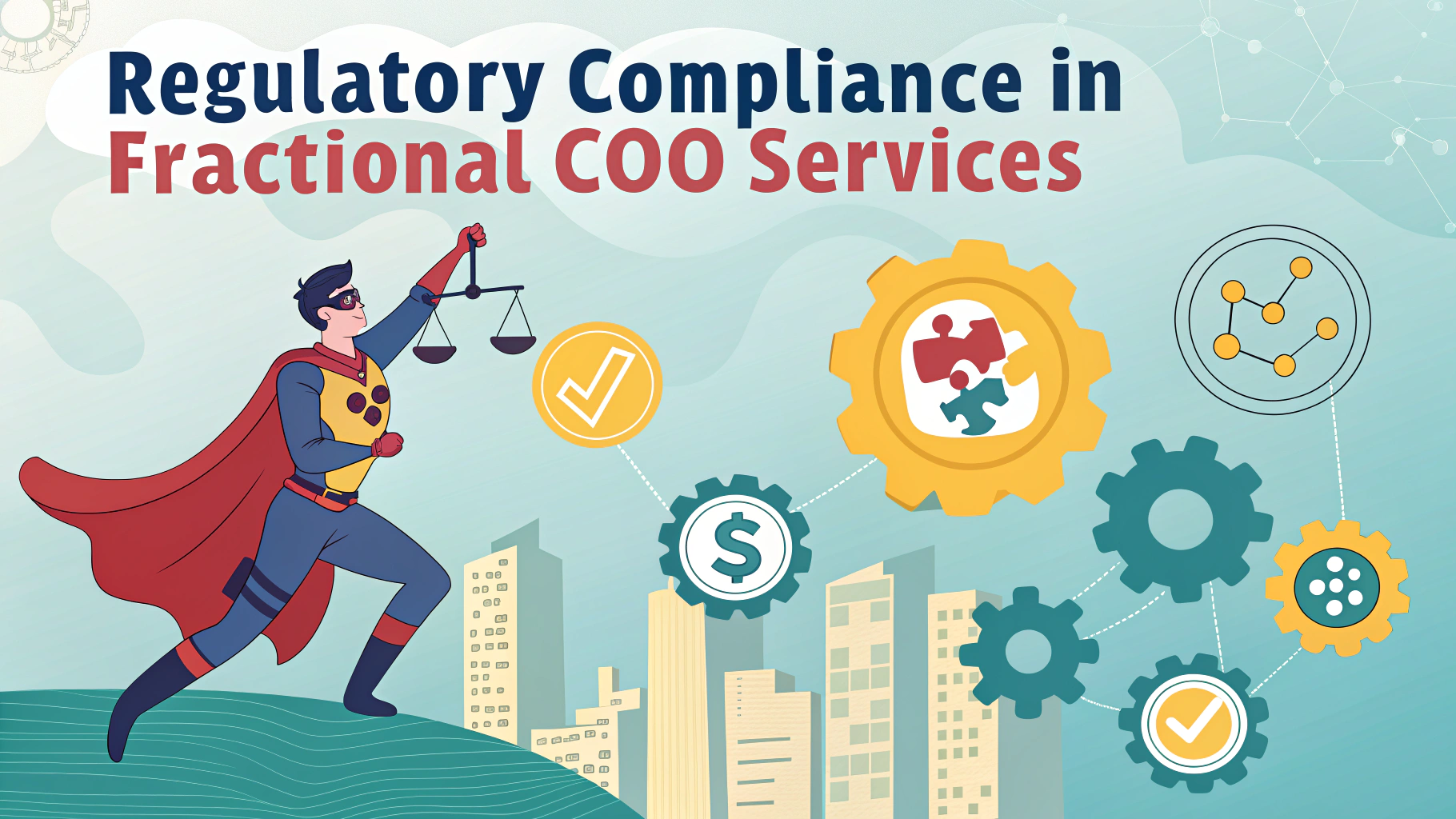A fractional COO must balance operational excellence with realistic performance metrics that align with industry standards.
Understanding these benchmarks helps set achievable goals and demonstrates clear value to client organizations.
This guide examines key performance indicators and industry-specific metrics to help fractional COOs establish meaningful objectives.
Core Performance Metrics for Fractional COOs
- Revenue Growth Rate: 15-30% annual improvement
- Operational Cost Reduction: 10-20% within first 6 months
- Employee Productivity: 20-25% increase
- Process Efficiency: 30-40% improvement in cycle times
- Customer Satisfaction: 15-25% improvement in scores
Industry-Specific Benchmarks
| Industry | Expected Impact Timeline | Key Focus Areas |
|---|---|---|
| Technology | 3-6 months | Scalability, Product Development |
| Manufacturing | 6-12 months | Supply Chain, Quality Control |
| Healthcare | 6-9 months | Compliance, Patient Care |
| Retail | 3-6 months | Inventory, Customer Experience |
Setting Measurable Objectives
Break down larger goals into 90-day achievement milestones.
- Month 1-3: Assessment and strategy development
- Month 4-6: Implementation of core processes
- Month 7-9: Optimization and refinement
- Month 10-12: Scale and expansion
Financial Impact Metrics
Track these key financial indicators:
- Working capital optimization: 15-20% improvement
- Inventory turnover increase: 25-30%
- Operating margin improvement: 5-10%
- Cash flow enhancement: 20-30%
Operational Excellence Standards
Focus on these operational improvements:
- Process standardization: 80% completion rate
- Quality metrics: 98% compliance
- Team productivity: 25% increase
- Project completion rate: 90% on-time delivery
Measuring Success and ROI
Document these success metrics monthly:
- Cost savings achieved vs. fractional COO investment
- Process improvement outcomes
- Employee satisfaction scores
- Customer retention rates
Next Steps for Implementation
Start with a baseline assessment of current operations using these benchmarks.
Create a structured implementation plan with clear milestones and accountability measures.
Schedule monthly review sessions to track progress and adjust strategies as needed.
For professional guidance on implementing these benchmarks, contact the Fractional COO Association at (800) 555-0123 or visit www.fractionalcooassociation.org.
Risk Management Considerations
Implement these risk mitigation strategies while pursuing operational goals:
- Regular compliance audits
- Cross-functional backup plans
- Data security protocols
- Change management procedures
Technology Integration Standards
Core Systems Implementation
- ERP optimization: 90% utilization
- CRM adoption: 95% user engagement
- Analytics platform deployment: 85% data accuracy
Digital Transformation Metrics
- Process automation: 60% of eligible tasks
- Cloud migration: 80% of systems
- Digital workflow adoption: 75% of teams
Stakeholder Communication Framework
Establish these regular touchpoints:
- Weekly executive updates
- Monthly board presentations
- Quarterly strategic reviews
- Annual performance assessments
Driving Sustainable Growth
Focus on long-term value creation through:
- Scalable operational frameworks
- Documented best practices
- Knowledge transfer protocols
- Succession planning strategies
Maximizing Fractional COO Impact
Success in the fractional COO role requires balancing immediate operational improvements with sustainable long-term growth strategies. Regular measurement against these benchmarks ensures accountability and demonstrates clear value to stakeholders.
Remember that metrics should be customized to each organization’s unique needs while maintaining alignment with industry standards. Continuous monitoring and adjustment of these benchmarks will help optimize the fractional COO’s impact on organizational success.
FAQs
- What are typical industry benchmarks for a fractional COO’s hours per client?
Most fractional COOs dedicate 10-20 hours per month per client, with some relationships requiring up to 40 hours monthly depending on company size and needs. - How should success metrics be measured for a fractional COO?
Success should be measured through KPIs including operational cost reduction, process efficiency improvements, employee turnover reduction, and successful implementation of systems and procedures. - What is the average cost range for hiring a fractional COO?
Fractional COO rates typically range from $150-500 per hour, or $2,000-10,000 monthly retainer, depending on experience level and market. - How long does it typically take to see results from a fractional COO engagement?
Most companies see initial improvements within 3-6 months, with significant operational transformations occurring within 9-12 months. - What percentage of operational efficiency improvement should companies expect?
Successful fractional COO engagements typically yield 15-30% improvement in operational efficiency within the first year. - How many companies can a fractional COO effectively serve simultaneously?
Most experienced fractional COOs can effectively manage 3-5 clients simultaneously while maintaining quality service and results. - What industries typically see the best results with fractional COOs?
Professional services, technology companies, manufacturing firms, and growth-stage startups typically achieve the strongest results with fractional COOs. - What are standard contract terms for fractional COO agreements?
Standard agreements typically include 6-12 month commitments, with 30-60 day termination clauses and clearly defined scope of services and deliverables. - How often should a fractional COO meet with the leadership team?
Best practices indicate weekly or bi-weekly strategic meetings with leadership, plus monthly performance reviews and quarterly strategic planning sessions. - What is the average project completion rate for fractional COO initiatives?
Successful fractional COOs typically achieve 70-85% project completion rates within agreed timelines.








